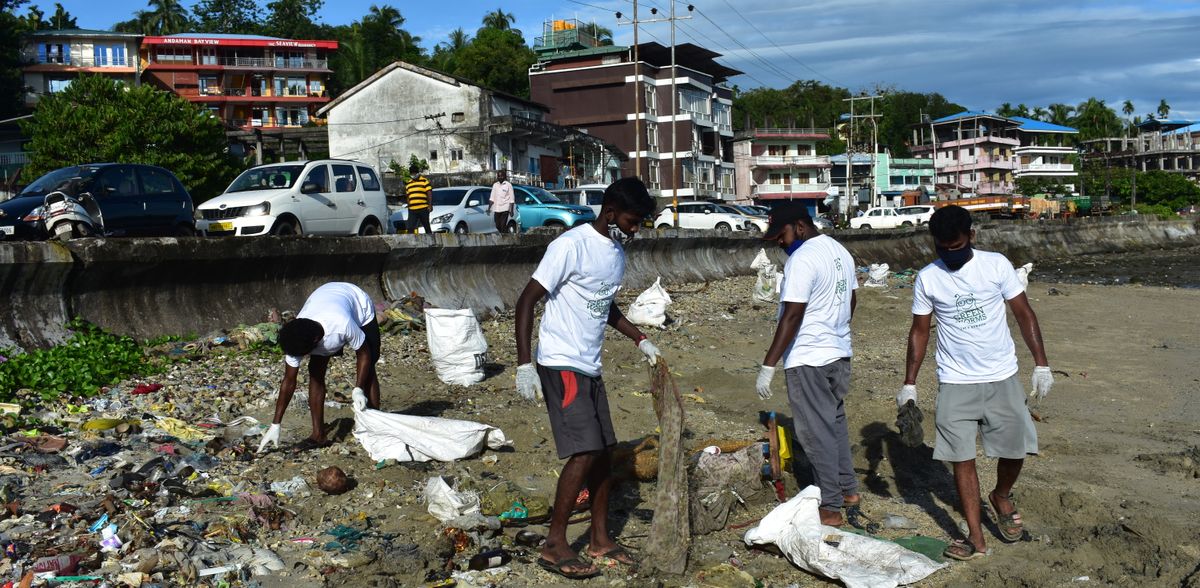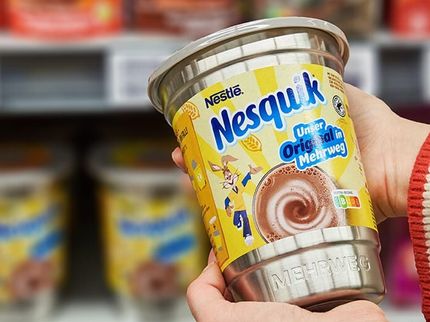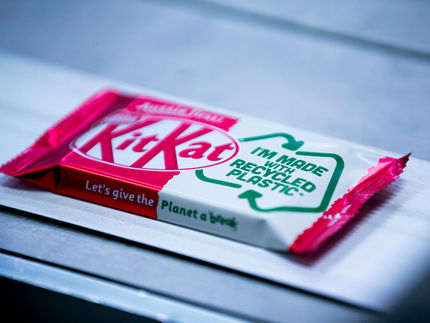Plastic packaging system error: a vegan chocolate bar causes trouble
Advertisement
Off to the South Seas for a short break? No problem. This vegan chocolate bar tastes like so many juicy coconuts - as it melts on your tongue, you can already feel the sun on your skin.
But when the break ends, that's honestly when the problem begins. Yes, it's delicious and only uses 93g of CO2e in its product life cycle. It also protects animals and has 25% less sugar than conventional varieties, but it still generates 0.7g of polypropylene plastic packaging every time. This is part of a big invisible problem that we all want to change: The global waste and industrial landscape. But let's start at home.
Post-consumer waste
What happens as soon as you throw away the packaging? Everything that ends up in the yellow garbage can is separated by type of plastic and then washed. Finally, a recyclate is produced, either ground or as granulate, which can be used to manufacture new plastic products. In return, companies pay a contribution to the Green Dot to finance the recycling industry in Germany. Sounds reasonable.
If the packaging ends up in the black garbage can, it is incinerated. And that is unfortunately the more frequent case.
Every two years, the industry conducts a study on plastic production and waste, to which the Federal Environment Agency also refers. Of the 5.4 million tons of so-called "post-consumer waste", i.e. the waste that accumulates after household use, 58% comes from packaging. Food is at the forefront of this.
According to the study, the majority, 2.94 million tons, of waste is incinerated.
As waste and plastics are almost exclusively either incinerated or recycled in Germany, we are considered a country with an extremely high recycling rate. Virtually "only" 30,000 tons of post-consumer waste end up in landfill every year. Top!
Export hit plastic waste
Germany is also the EU leader in exports: according to the federal state statistics, 745,100 tons were exported abroad in 2022. This corresponds to around 37,250 containers and thus pole position among EU countries. Since November 2023, these countries have only been allowed to export their plastic waste to OECD member states. This means that European waste can no longer be shipped to Southeast Asia.
Great Pacific Garbage Patch and life in the garbage
While recycling is still largely paid for in Germany, the global situation is very different. The complete lack of waste infrastructure and the import of waste from Western countries in recent years has led to massive pollution of land areas, rivers and therefore also the oceans. Waste incinerated in open spaces contributes up to 10% of global CO2 emissions and emits methane gas. Small plastic particles end up in the sea as microplastics and reach us humans via the food chain. In the sea, animals sometimes mistake garbage for food and die as a result. There are already several garbage patches in the world's oceans with catastrophic consequences for the environment.
Preventing litter
So how do we deal with this if we want to enjoy our little South Sea break?
The first question for us at Veganz is always, can we avoid plastic waste? This is currently not possible for our little Choc Bar. Cellulose-based food packaging is now available, but our manufacturers are still testing this on their packaging lines. Until then, however, some time will pass and, unfortunately, in the worst-case scenario, 9.5 tons of plastic will end up in the world's oceans. That would be a big bummer!
That's why we are working with Clean-Hub to support the development of waste management in Kerala, India, and prevent waste from remaining in nature in the first place and having a negative impact on our environment. At the same time, we are creating sustainable jobs in the Global South. We are certified as a B Corp company, so our social and environmental impact is independently certified.
No, this does not solve the problem with the bar. Not even if 31% of our product packaging is already made from recycled or sustainable materials. The plastic packaging is still there. But we are fighting against the systemic error of simply thoughtlessly throwing plastic waste into a cycle where it can end up in the sea. This is already helping many people today. Especially you, so that you can go on to the South Seas for a little break.
Note: This article has been translated using a computer system without human intervention. LUMITOS offers these automatic translations to present a wider range of current news. Since this article has been translated with automatic translation, it is possible that it contains errors in vocabulary, syntax or grammar. The original article in German can be found here.
Other news from the department business & finance
Most read news
More news from our other portals
Something is happening in the food & beverage industry ...
This is what true pioneering spirit looks like: Plenty of innovative start-ups are bringing fresh ideas, lifeblood and entrepreneurial spirit to change tomorrow's world for the better. Immerse yourself in the world of these young companies and take the opportunity to get in touch with the founders.

































































